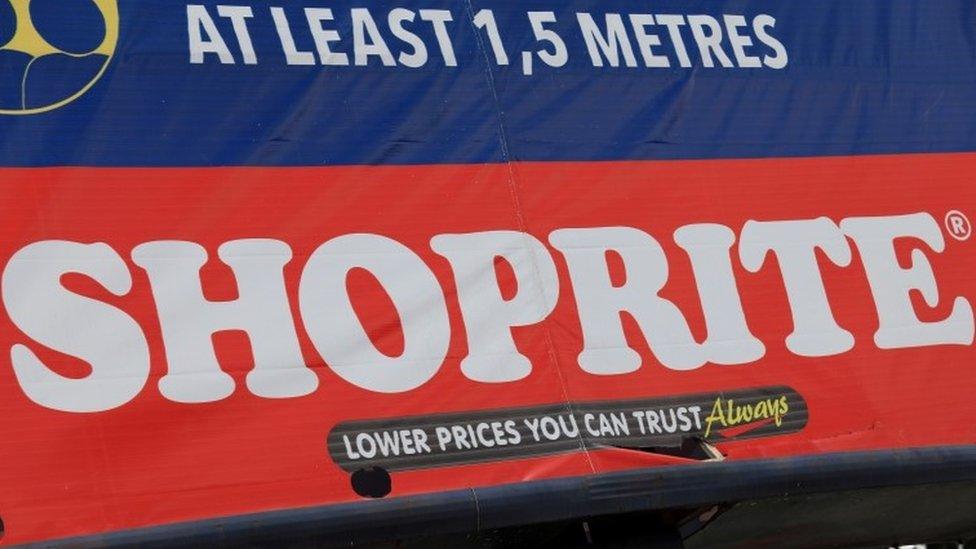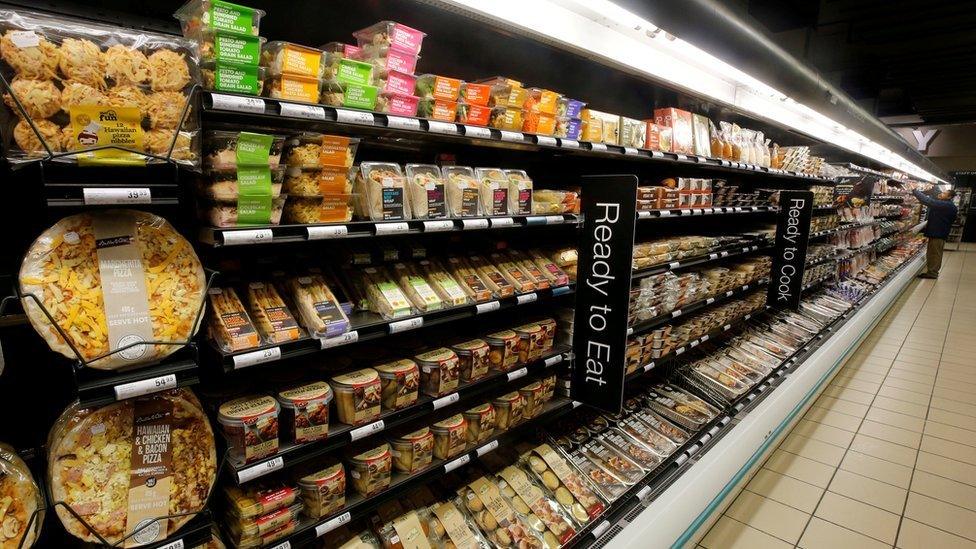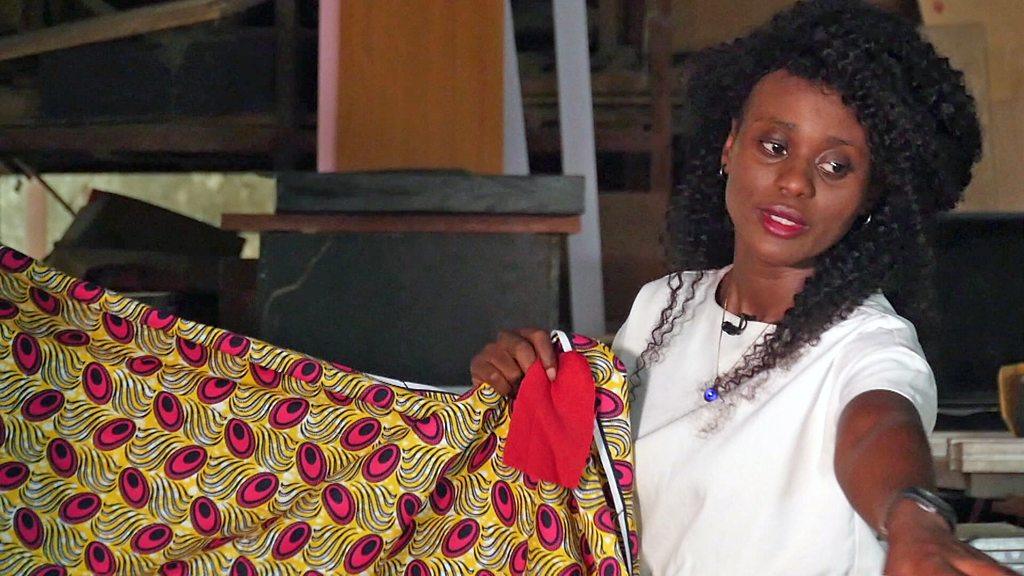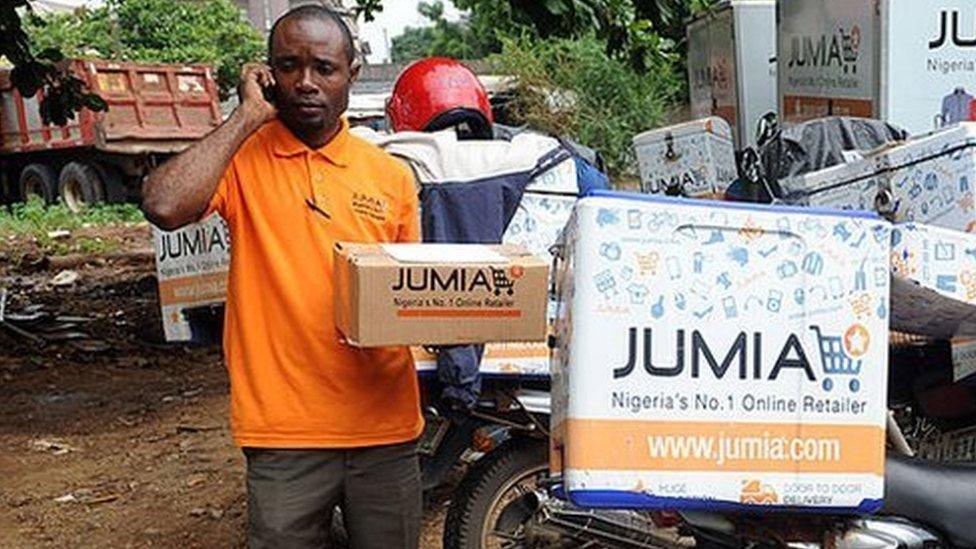Shoprite: Africa's biggest supermarket considers pulling out of Nigeria
- Published

Shoprite employs at least 2,000 people in Nigeria
Africa's biggest supermarket chain, South African-owned Shoprite, says it is considering pulling out of Nigeria.
It said it was looking at selling all "or a majority stake" of its operations in Africa's most-populous country.
Shoprite is the latest South African retailer to look at leaving Nigeria - clothing firm Mr Price announced its exit in June, and Woolworths in 2014.
Shoprite's decision comes at a time when Nigeria's economy is struggling amid the coronavirus pandemic.
Economists from the World Bank have warned that the oil-rich country could be on the brink of its worst recession since the 1980s, external because of "the collapse in oil prices coupled with the Covid-19 pandemic".
Shoprite said lockdown restrictions because of coronavirus had affected its operations in 14 African countries, with sales declining by 1.4% in those markets. Its South African operations on the other hand witnessed "significant growth".
The retailer has also been battling currency-induced inflation surges - especially in Nigeria, where it has been hit hardest.

Shoprite is one of the biggest South African businesses operating in Nigeria
Shoprite employs at least 2,000 people in Nigeria.
The retailer's stores in the capital, Abuja, and the commercial hub, Lagos, became a flashpoint for outrage in 2019, following violent attacks in South Africa on other migrants from elsewhere in the continent.
The National Association of Nigerian Students (Nans) - which represents university students at campuses across the country - picketed branches of Shoprite and South African telecoms giant MTN, turning away staff and customers.
The student body demanded that all South African-owned businesses leave the West African state.

Why Shoprite has struggled in Nigeria
Analysis by Nduka Orjinmo, BBC News, Lagos
Shoprite's failure in Nigeria is not surprising, the shiny shopping malls with escalators where its outlets are located are more popular for taking pictures than actual shopping.
Though it is regarded as a working-class supermarket in South Africa, most here consider it as catering to the upper classes.
Tens of millions of Nigerians are poor or unemployed - and the minority who have the spending power to shop at Shoprite have seen their finances take a battering because of the coronavirus pandemic.
These are hard times for businesses, but the slow growth at Shoprite Nigeria predates the pandemic.
Consumers here want quality services, but they want it on the cheap.
- Published6 January 2020

- Published29 April 2020

- Published3 August 2020
